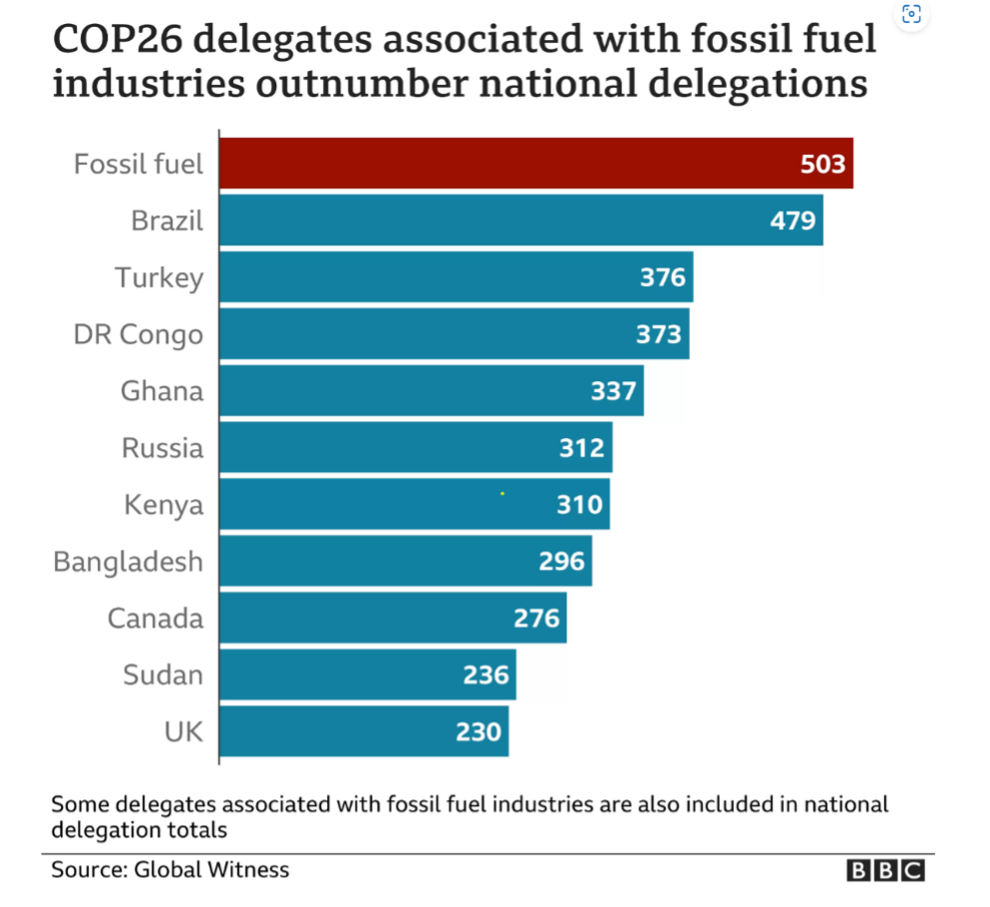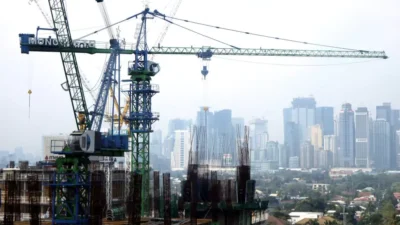Time for adaptive change
This article is based on the Chairperson’s Keynote at the PropertyGuru Asia Real Estate Summit originally presented on 8 December 2021.
The crucial role of data in driving overall business successes and achieving sustainability outcomes
There are pivotal events and milestones that directly affect us. Sometimes, these events change everything. One such event is the COVID-19 pandemic, which has certainly been an unprecedented driver or accelerator of change; signalling a major milestone; a new era.
This new era will significantly change our foundational assumptions. It compels us to think about whether anything will return to “normal.” As in any new era, nothing will remain the same.
Concurrently, a universe of data has been unleashed in combination with an unprecedented focus and call to action for sustainability. All of this, in combination, are extremely challenging dynamics.
Data, and all the technologies that capture, expand and facilitate data’s transformation into information, and beyond, is changing our world. There is no going backwards but where will all this take us? This is an open question.
To discuss this, and other related issues, over 70 speakers and panellists, came together in ARES 2020 and ARES 2021. Together, we discussed the real estate industries’ needs, the power of data in combination with the call to adapt to a changed world, the quest for more sustainable outcomes and optimal business successes, including maximising business profitability.
Sustainability has become a crucial part of corporate strategies across various industries. Sustainability is fundamentally a path away from “business as usual”, i.e., to achieve sustainability, we need to change and evolve progressively; to do that we need to build on the past but not be limited by it.
We need reliable data to support our vision, objectives, and goals. Ultimately, it is data that can bring highly specific focus, enabling us to examine more accurately, test our assumptions, determine our benchmarks and monitor our ‘actual’ progress. Data is essential as industries adapt to pursue sustainability initiatives and contend with the significant forces and dynamics of this new era.
The four pillars of sustainability
In ARES 2020 and ARES 2021, there was emphasis on the importance of sustainability across all four pillars: being the environment, human, social, and financial.
Environmental sustainability does not only pertain to CO2 emissions or even overall carbon emissions. That said, the global focus on reducing carbon emissions, striving for carbon neutrality, etc are highly indicative of the holistic strategies and approaches needed to achieve all aspects of environmental sustainability.
Also essential are the other three sustainability pillars: the human, social, and financial. These are even more dynamic with how the pandemic has changed and influenced the ways we conduct our daily affairs. It has changed our needs and perceptions in every workplace, for example, in terms of office space, purpose, and associated amenities. It has changed the way we make transactions, with, for example, retail organizations shifting their focus evermore onto online channels and so much more.
The pandemic marks a major point in time where our human and social dynamics have significantly changed and will never go back to a historical baseline. At the same time, our perceptions and measures of value have irrevocably changed. This new era has significantly shifted all parameters associated with the 4 pillars of sustainability.
CO2 emissions progress update
Sustainability is the path for positive change and progress. It is the path that so many of us are gladly dedicated to, but dedication, passion, and vision are not enough.
‘Actual’ outcomes are the only ‘real’ measure of success.
CO2 levels are a direct measure to climate change concerns. These are also an indirect measure of the levels of pollution, inefficiency, waste, and other concerns; all of which need to be addressed to achieve a sustainable future.
At ARES 2020 and ARES 2021, we highlighted the consistent rises in CO2 global levels since the formation of the Intergovernmental Panel for Climate Change (IPCC) back in 1988. Despite all the attention and focus on CO2 in previous decades, CO2 levels have consistently, and steadily, risen.
With the COVID-19 pandemic causing business disruptions, economic slumps via lockdowns, travel slowdown and so on, it was expected that there might be one positive outcome: that overall CO2 levels would be reduced. But this did not happen. Global CO2 levels have only kept increasing.
This chart from the NASA website shows the National Oceanic and Atmospheric Administration readings of CO2 levels from 2005 at 378 ppm to October 2022 at 419 ppm.
There has effectively been no interruption to the rise of global CO2 levels at any time; this shows how entrenched carbon emissions are in our lives that even the global pandemic did not have an impact.
With great focus, it is possible to achieve desired outcomes, but this is not happening yet in terms of reducing global CO2 emissions.
If organisations resolve to make slow yet steady improvements every year, then outstanding results will be achieved.
The Conference of the Parties (COP 26) in Glasgow held in 2021 did achieve some outcomes and broadened the focus for environmental sustainability in a number of areas. The outcome on the longstanding issue of carbon emissions was for all parties to further consider increasing their commitments and meet a year later at COP 27 in November 2022. COP 27 has occurred and yet these binding and/or assured commitments and actions did not occur as expected or required.
While there is progress in global meetings, pledges, and other actions, there are issues with timing, scope, and surety.
As reported by the BBC, delegates from fossil fuel companies at COP 26 in 2021 outnumbered the representatives from many individual countries.
It could be considered excellent that representatives from the fossil fuel industry are at the table and are pledging to take significant actions. However, people are concerned that reductions in carbon emissions may continue to be delayed. 62 percent of anthropogenic CO2 emissions, the emissions caused by man, come from fossil fuels – mostly coal and gas. It was reported by the BBC in 2022 that the delegation from the fossil fuel industry increased by a further 25 percent at COP 27.
The pledges and intentions, by governments, corporations and others, to achieve carbon neutrality by 2050 or other dates need to be assessed and considered as promises or aims, which means they are not yet assured.
To achieve these commitments in under 28 years, we would have to all but stop electricity production from coal, gas, and other fossil fuel energy sources. Realistically, this might not happen given the timeframe. In ARES 2020 and ARES 2021, delegates have explored the challenges and actions required in the real estate sector, and this remains a hot topic for ARES 2022.
A piece of the climate change challenge
CO2 emissions are only a part of the story. To illustrate, 25 percent of anthropogenic climate change, being the climate change caused by man, come from methane. Methane is a highly potent greenhouse gas. CO2 emissions get a lot of attention while methane emissions do not.
As every individual, organisation, sector and region contributes directly and/or indirectly to methane (CH4) emissions data gathering, analysis and strategic actions to achieve reductions are required. Paradoxically, global levels are not reducing, CH4 levels are also significantly increasing.
The above is only one example that highlights the need and importance that holistic approaches and strategies are needed for sustainability.
COP 27 was recently held in Egypt in November 2022, and there was mixed reaction to the outcomes. The ‘Loss and Damage Fund‘ for vulnerable countries was considered progress, however, while other actions associated with climate change fell short of expectations at COP 26.
COP 28 in the UAE to be held in November 2023 will need to have very different outcomes if the intentions discussed in 2022, which, for example, is to halt the rise of CO2 by 2025, is to be achieved by that date, or even by 2030.
The full range of carbon emissions (CO2, methane, etc.) are not the only issues that need to be considered, as carbon emissions are only a part of the overall environmental sustainability agenda.
Holistic approaches and strategies are required from all perspectives.
In the real estate sector, sustainability applies not only to new buildings but also to existing buildings. This should be done under a step-by-step approach as part of building managers’ facilities management programmes. For instance, setting a goal of 3.5 percent annual reductions in energy consumption is achievable and is highly beneficial in terms of environmental and financial sustainability, including increased revenues and profitability.
Every real estate company can, and should, be engaged in sustainability action now. The goal is not just to achieve results by a specific period in the distant future like 2030 or 2050 – but as early as 2023 or 2024 – and beyond.
It is possible, and essential, to assure actual outcomes and overall success is achieved year on year – every year.
Advancing sustainability in our sector is easier with capital renewal programmes, major real estate refurbishments, and, of course, in new project developments; but is this really happening? No. For new projects, in many places worldwide, sustainability practices are not being comprehensively applied and in some sustainability is not considered at all.
With so many opportunities and rewards for businesses, what is holding them back?
Not a cost but an opportunity
Many people think that high cost is an unavoidable outcome in any attempt to achieve sustainability, but this is simply not true.
Sustainability initiatives may increase capital costs, with investment costs earned back in the form of operational savings over time. This is an investment approach and can often result in reliable, assured and financially positive outcomes.
However, this is not the only approach. In my personal experience, being focused on value and sustainability outcomes for clients globally, I have never come across an activity, project, organisation, etc that could not improve its sustainability and reduce costs simultaneously.
This is why all businesses and organisations should review and assess all aspects of sustainability strategically and holistically so they can see that integrate sustainability and reduce all costs – both capital expenditure (CAPEX) and operational costs (OPEX).
Sustainability should always have positive financial outcomes and may, and often does, result in savings for both upfront and ongoing costs.
Strategic and holistic actions
As outlined above organisational decisions do not boil down to choosing between either making profits or being more sustainable; with holistic reviews and data-driven planning, both can be reliably achieved.
That said – it is not easy. Nor is it difficult. Beyond vision it needs holistic reviews and dynamic strategies to navigate through the challenges and maximise the opportunity outcomes.
For example, a significant barrier to ‘actual’ sustainability outcomes is greenwashing. This often involves the misuse of data via presentations of information that is incomplete, misleading, or just patently incorrect. The feedback we received from ARES 2020 strongly supported our calling out of greenwashing as a very significant issue.
Unfortunately, greenwashing is widely practised. Alarmingly, its perpetrators believe in what they are promoting. This can occur from a range of unintended but misguided beliefs. This could be simply an unconscious bias or, more often, a belief in their teams, by unchallenging their actual status against their teams’ unachieved intentions or contentions.
Greenwashing is becoming a serious liability for organisations. It is essential to make concerted efforts to eliminate greenwash so that only authentically green products and services are developed and marketed. With the explosion of data, benchmarking, and comparative reviews, the impacts of greenwashing can be seriously diminished or eliminated.
Without doubt, data is crucial to accelerating sustainability efforts. However, data alone does not assure progress. The key to sustainability outcomes are adaptive strategies informed by holistic approaches.
It’s in our hands
Every company in every country knows and accepts that attaining sustainability status is a key differentiator. This is evident in the statements being made by every leader in private enterprises and government organisations worldwide.
There is no magic bullet. Everyone must take immediate action if we are to see results. Looking at the biggest lessons from COP 1 in 1988 through to COP 27 in 2022, from the UN Sustainable Development Goals launched in 2015, and from every organisation and government action(s), we are taught that assured changes and lasting outcomes are made in small, strategic, and holistic increments.
The future and sustainability progress is in our hands, it will cost us too much if we falter or fumble.
This article was originally published on asiarealestatesummit.com. Write to our editors at [email protected].
Recommended
Why Asia’s mixed-use developments are the future of real estate
Dynamic integrated communities are fusing real estate with commercial, leisure, and other amenities
Transforming cities worldwide: Surbana Jurong’s vision for the future
Surbana Jurong excels in master planning, infrastructure, and urban development
Inside Asia’s commercial real estate: The cities thriving and those facing tough times
Shifting consumer preferences, and fluctuating economic policies mean commercial real estate investors in Asia must remain agile
Why young Asians are choosing singlehood and reshaping real estate trends
Marriage is out, and singlehood is in as young Asians subvert convention to explore alternative paths in real estate












